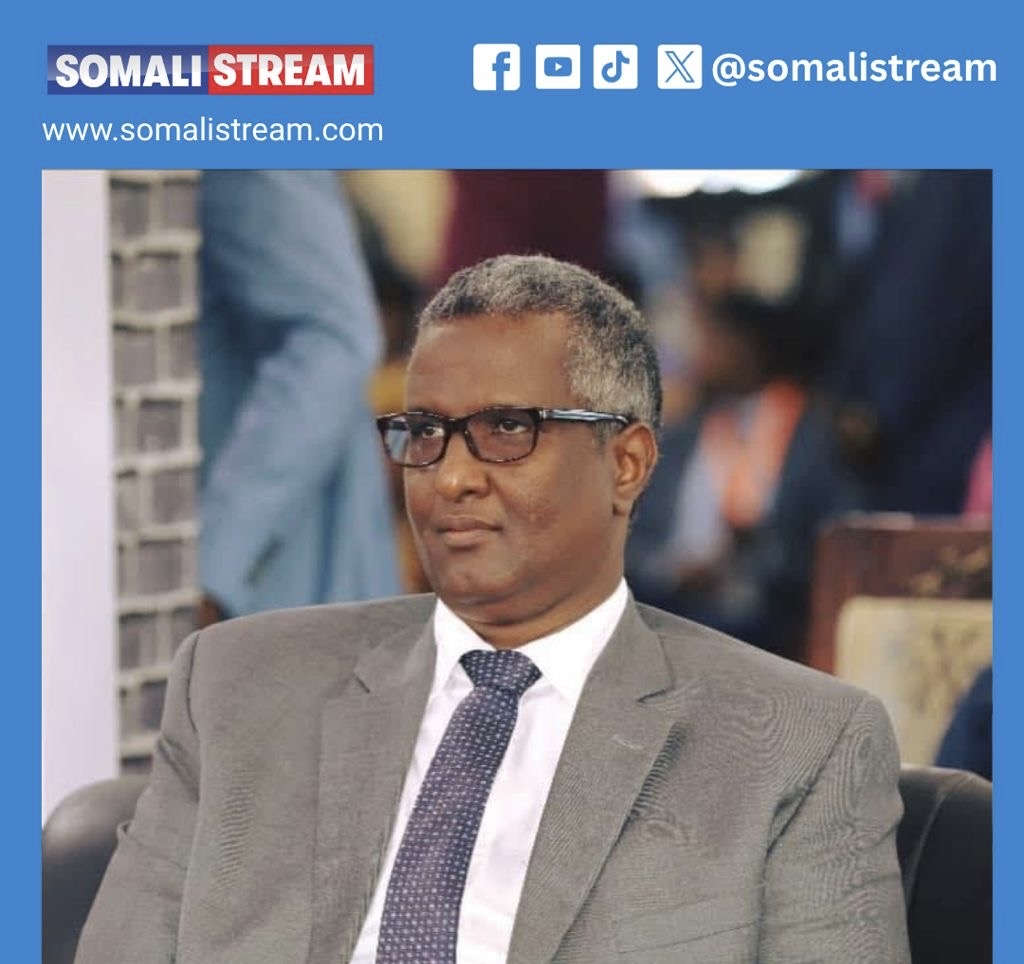By Somali Stream
In a country still emerging from decades of state collapse, Somalia’s democratic institutions remain nascent, fragile, and fragmented.
While elections are held and governments formed, the country lacks a coherent and institutionalized political opposition – an essential feature in any functioning democracy. Yet amid this vacuum, one figure has managed to maintain a consistent, if not controversial, voice of dissent: Abdirahman Abdishakur Warsame.
Over the past 15 years, Abdishakur has carved out a rare identity in Somalia’s turbulent political landscape: a structured opposition leader with a defined political philosophy and a clear public message. In a nation where most politicians shift alliances based on opportunity and where opposition often dissipates as soon as power changes hands, Abdishakur’s steadfastness stands out.
When he’s not vocally opposing unconstitutional term extensions or standing up for displaced families forcibly evicted from their homes under the administration of President Hassan Sheikh Mohamud, Abdirahman Abdishakur is often found campaigning for press freedom, civil liberties, and human rights in Somalia. His activism spans administrations and causes, underscoring a commitment to principle over political convenience.
He has become the voice that doesn’t bend; whether in the political dry season or in times of opportunity.
Why Somalia’s opposition is fragmented – and why that matters?
Unlike mature democracies, where political identity is often grounded in ideology – be it conservative, liberal, nationalist, or socialist; Somalia’s political class remains largely personality-driven. Opposition figures tend to emerge not from party platforms or competing visions of governance, but from political fallouts and realignments within the ruling elite.
Abdirahman Abdishakur, a former cabinet minister and presidential candidate, has attempted to change that narrative. Through his Wadajir Party, founded on the philosophy of “Isku Tashi” (self-reliance), he has advocated for a platform-based opposition that emphasizes political vision over personal rivalry.
Institutionalizing Dissent
One of Abdishakur’s key contributions to Somalia’s political evolution is his effort to formalize political dissent. While many Somali politicians are followed widely on social media, few use their platforms for public education or policy engagement. Abdishakur, by contrast, has consistently used his channels to conduct public lectures, youth forums, and civic discussions focused on governance, federalism, and constitutional reform.
His party has even established youth think tanks and discussion hubs aimed at nurturing future political leaders – an attempt to lay the foundation for ideological continuity beyond his own career.
“It’s not enough to oppose,” he once said in a public forum. “You must offer a viable alternative.”
From controversy to credibility
Like many political figures in the Horn of Africa, Abdishakur has faced his share of controversy. Accusations persist regarding his role in earlier maritime negotiations with Kenya – a sensitive issue in Somali nationalism. He has consistently denied wrongdoing, stating that he was the first to defend Somalia’s maritime boundaries and never signed any agreements ceding territory.
Critics also point to his sometimes sharp rhetoric, which can deepen existing social and clan wounds. Detractors describe him as a lone-wolf politician, sometimes more focused on his individual trajectory than building coalitions. Supporters, however, argue that his outspokenness is necessary in a country where silence and complacency often accompany political survival.
The Path Ahead: Can Somalia normalize the role of opposition?
Somalia’s political future depends not just on who holds power but on how power is challenged. The absence of strong, organized opposition parties has allowed ruling coalitions to operate without meaningful checks and balances.
In this context, Abdishakur’s persistence is instructive. He has remained critical through multiple administrations, refused to abandon his political platform for personal gain, and pushed for a political culture rooted in policy rather than patronage.
If Somalia is to develop a resilient democratic system, voices like Abdishakur’ persistent, structured, and occasionally uncomfortable; will be essential. His example could inspire a new generation of political actors who see opposition not as a stepping stone to power, but as a necessary pillar of democratic governance.
Abdirahman Abdishakur Warsame may not yet possess the political weight or populist legacy of Kenya’s longtime opposition figure and former Prime Minister Raila Odinga, the resilience of Zimbabwe’s late Morgan Tsvangirai, the defiance of Uganda’s Kizza Besigye, the fiery rhetoric of Tanzania’s Tundu Lissu, or the ideological mobilization of Julius Malema and his Economic Freedom Fighters (EFF) in South Africa. Yet, in Somalia where structured opposition is still nascent, fragmented, and often short-lived; Abdishakur’s consistency, policy-based dissent, and effort to institutionalize opposition through the Wadajir Party stand out as a rare political achievement. In such a context, his persistence is not only notable but itself a form of political reform. Somalia’s fragile democracy needs such figures – not just to criticize the status quo, but to offer real, sustainable alternatives to it.


